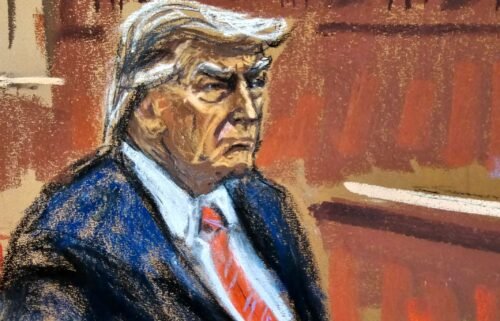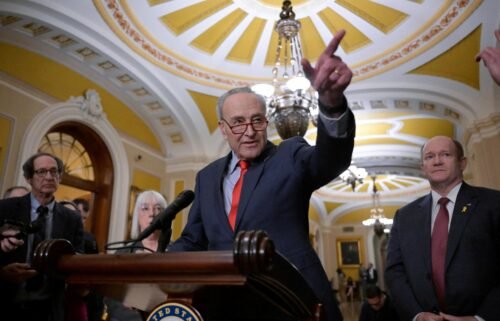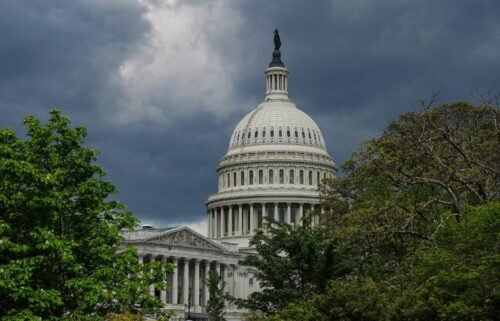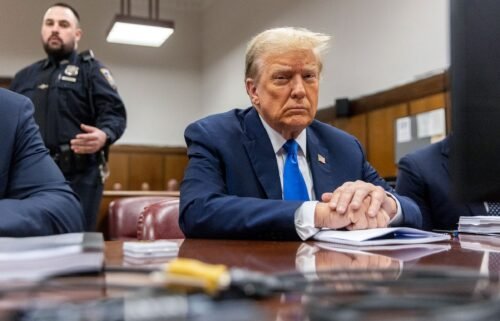Why was Bill Clinton impeached?
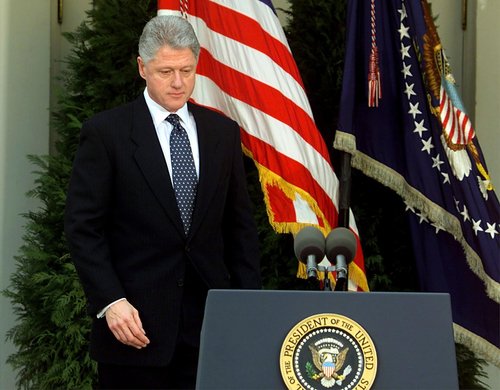
President Donald Trump faces impeachment for using the powers of his office to damage a political rival. President Bill Clinton faced impeachment for something much more personal and salacious: he had an affair in the Oval Office and then lied about it to cover it up.
Where the details of Trump’s impeachment effort hinge on the improper use of taxpayer dollars to pressure a foreign head of state, Clinton’s involved personal embarrassment, personal betrayal and the dirty laundry of a President and his intern, as a lot of Americans over the age of 40 or so will vividly remember.
But while Clinton was impeached, he survived a Senate trial. No Democrats supported removing him from office and some Republicans even broke with their party.
That result is a lot closer to what is likely to come for Trump than the razor-thin acquittal of Andrew Johnson, who was saved by members of the opposing party, or Richard Nixon, who went down after lawmakers on his own side said they wouldn’t stick by him.
The numbers
Through the lens of today’s view of the #MeToo era, Clinton’s behavior might have earned a different result. But in the ’90s, given the number of Democrats in the Senate, the effort against Clinton was unlikely ever to succeed.
There is an extremely high bar to remove a president from office. It requires 2/3 of the Senate, or 67 senators when everyone is voting.
Twelve Senate Democrats would have had to turn on Clinton to put him in danger of conviction. Zero ultimately did, because Clinton never lost the support of his party.
How a land deal inquiry became a sex scandal
The Clinton impeachment turned on a salacious scandal that featured the President caught in a lie about his extramarital affair with an intern at the White House. It helped launch the country into an era of hyper-partisanship has only amplified under Trump.
While Clinton’s lies about his affair with Monica Lewinsky might be the most memorable part of the impeachment, that was not where it all started. Clinton had been under investigation by an independent counsel almost from the moment he took office, when he appointed an independent counsel to conduct an inquiry into a land deal he and his wife conducted long before he took office.
From there, the counsel had grown and expanded and looked into other elements of the Clinton presidency.
A panel of judges replaced the first Clinton independent counsel with Ken Starr in 1994. It was Starr who ultimately expanded his investigation to include a possible affair by the President after he was approached by Linda Tripp, a former White House secretary who had befriended Lewinsky and then recorded their phone conversations.
The other Clinton sex scandal
In the midst of the Starr investigation, Clinton was also accused of sexual misconduct in a lawsuit by Paula Jones, a former employee for the Arkansas state government.
Jones had sued Clinton in 1994 for sexual harassment and it set off a years-long legal battle that included an important Supreme Court decision in 1997 that made clear a President could face a civil lawsuit while in office.
It was as part of that case that Clinton was asked during a grand jury proceeding about the Lewinsky affair.
Clinton later reached an $850,000 out of court settlement with Jones a little more than a month before his impeachment and a month after Starr had published his report, which included 11 possible impeachable offenses, ranging from perjury and obstruction of justice to witness tampering and abuse of power.
The Republican impeachment push
Republicans distilled those down into four articles of impeachment. Two of them — for perjury in depositions other than the grand jury and for obstructing Congress — didn’t make it out of the House of Representatives. But Clinton was impeached for perjury after he lied to the grand jury in the Jones case, and also for obstruction of justice.
Clinton wasn’t the only one whose private failings were revealed. Rep. Bob Livingston, a Republican who supported impeachment and was in line to be speaker of the House, abruptly withdrew his name from running for that leadership position and admitted his own infidelity. He had been snared by a public call from Larry Flynt, publisher of the pornographic Hustler magazine, for proof of sexual hypocrisy.
The Senate trial of Clinton was a spectacle that featured videotaped testimony from Lewinsky and the embarrassing questions from Clinton’s grand jury testimony played back on the Senate floor.
The entire scandal consumed the country for a year. News of the affair leaked into the press in January of 1998. Clinton talked to a grand jury about the meaning of the word “is” in August. Starr released his infamous report with its prurient details in September. The House voted to impeach in December. Clinton’s trial in the Senate took place in February 1999.
Clinton’s job approval rating number remained high, which has led to the idea there can be political backlash for impeachment. But it’s also true that after his impeachment, Clinton’s vice president, Al Gore, didn’t invite him out on the campaign trail. George W. Bush ran as a Republican who would restore dignity to the Oval Office. And that argument helped get Bush into the White House even if it didn’t get Bush a popular vote majority.

